Earth's Systems
-
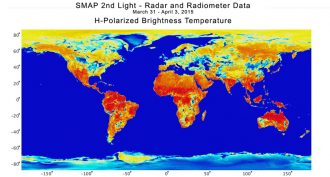 Climate
ClimatePredicting a wildfire with data from space
When the West gets dry it can catch fire. A teen decided to find out if satellite data might show where a fire’s fuel might reside.
-
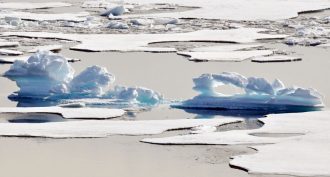 Environment
EnvironmentArctic Sea could be ice-free by 2050
Everyone contributes to the melting of Arctic sea ice, and all are in danger of making summer ice disappear there completely by 2050, a new study finds.
-
 Climate
ClimateCool Jobs: Wet and wild weather
How’s the weather? Forecasts rely on scientists and engineers who collect and interpret data gathered on the ground, in the sky and way up in space.
-
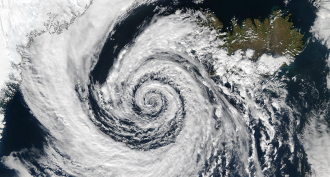 Earth
Earth‘Weather bomb’ storms send tremors through Earth
Scientists have detected tiny tremors in the Earth coming from an extreme storm. One day, those tiny tremors could help reveal Earth’s innermost secrets.
-
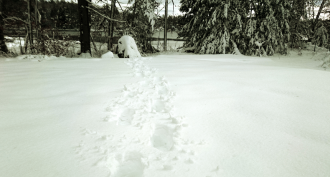 Climate
ClimateScientists Say: Albedo
To measure how much light reflects off an object, scientists measure its albedo.
-
 Earth
EarthOxygen-rich air emerged super early, new data show
Scientists had thought animals were slow to emerge because they would have needed oxygen-rich air to breathe. A new study finds that plentiful oxygen may have developed early. So animals may have been late on the scene for another reason.
-
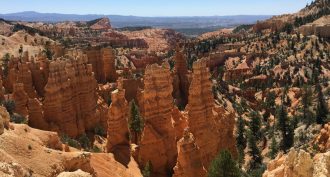 Earth
EarthScientists Say: Hoodoo
When softer rocks are covered with a harder rock layer, weathering can wear away the softer stone. This will leave behind tall thin towers — hoodoos.
-
 Earth
EarthHelium discovery blows away shortage worries
Fears that the world may soon run out of helium have been set aside for now by the finding of a huge reservoir of the gas in East Africa.
-
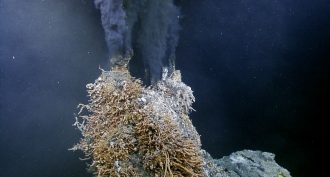 Earth
EarthSeafloor hosts surprising number of deep-sea vents
A new sensor detects changes in seawater chemistry and finds far more ecosystem-supporting seafloor vents than scientists had believed were out there.
-
 Earth
EarthEarth’s tectonic plates won’t slide forever
Earth’s surface morphs, owing to the movement of its tectonic plates. But those plates didn’t use to move so quickly. And in a few billion years they’ll grind to a halt, new research suggests.
-
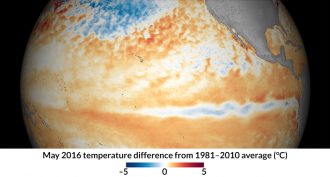 Climate
ClimateLast year’s strong El Niño is gone. Next up: La Niña
The 2015 to 2016 El Niño was one of the three strongest on record. It’s now over. Climate experts now predict a La Niña is on its way.
-
 Tech
TechConcrete science
Teen researchers are exploring ways to strengthen this building material, use it for safety purposes and use its discarded rubble.
By Sid Perkins